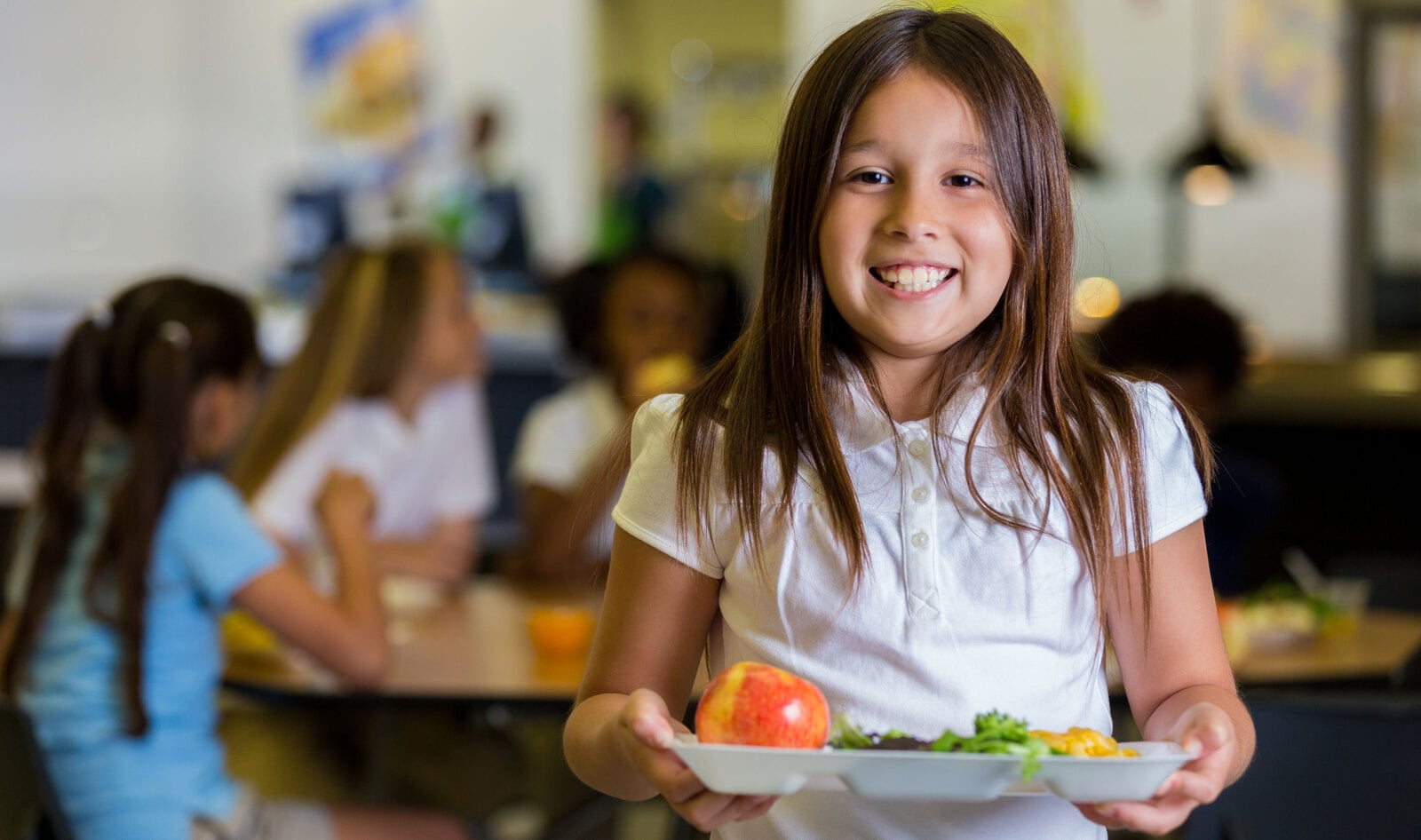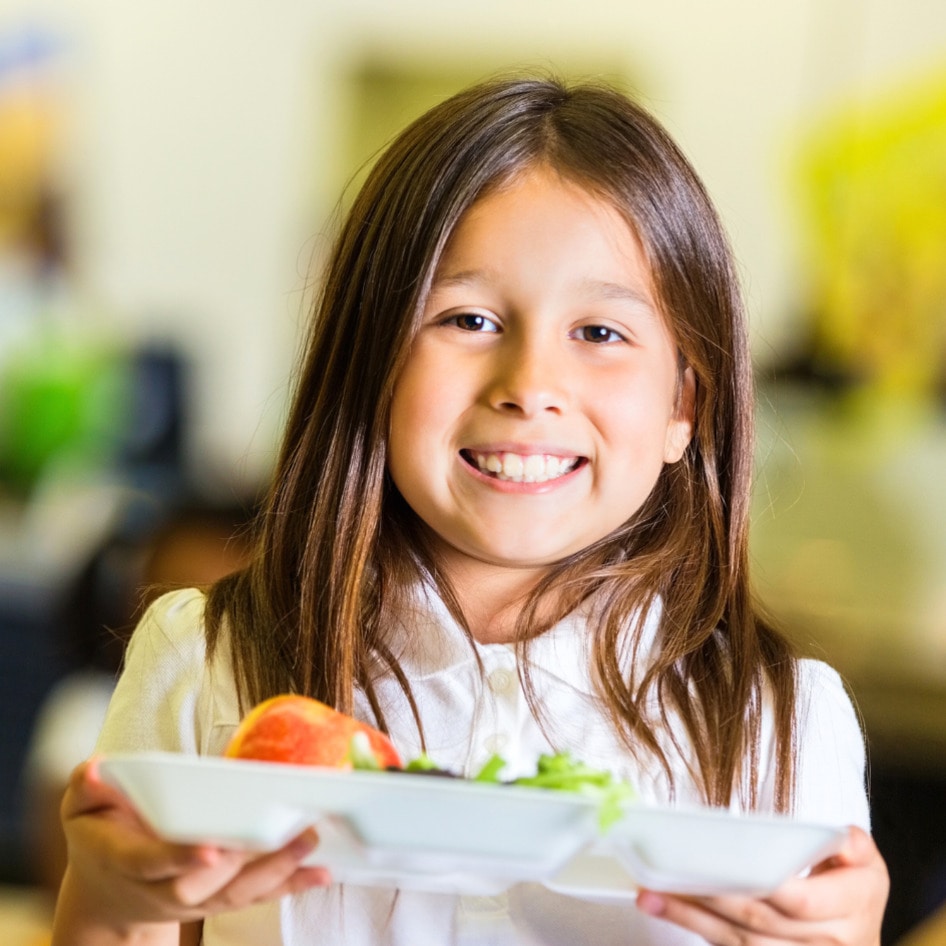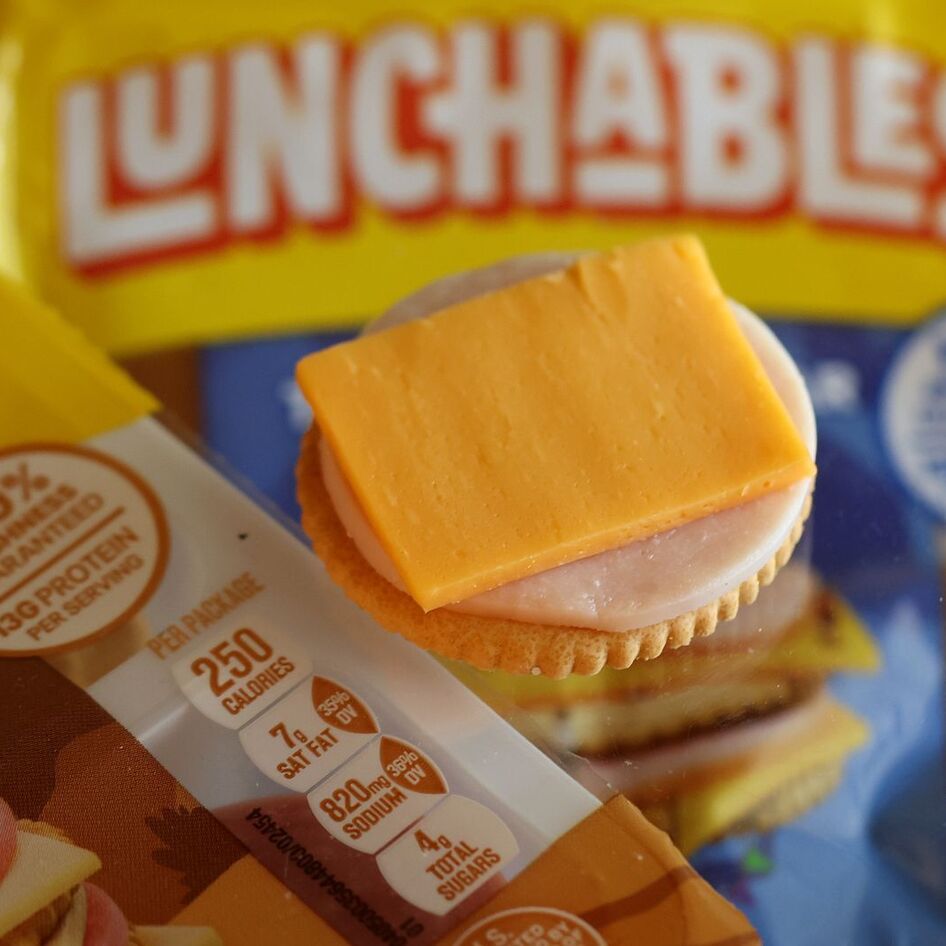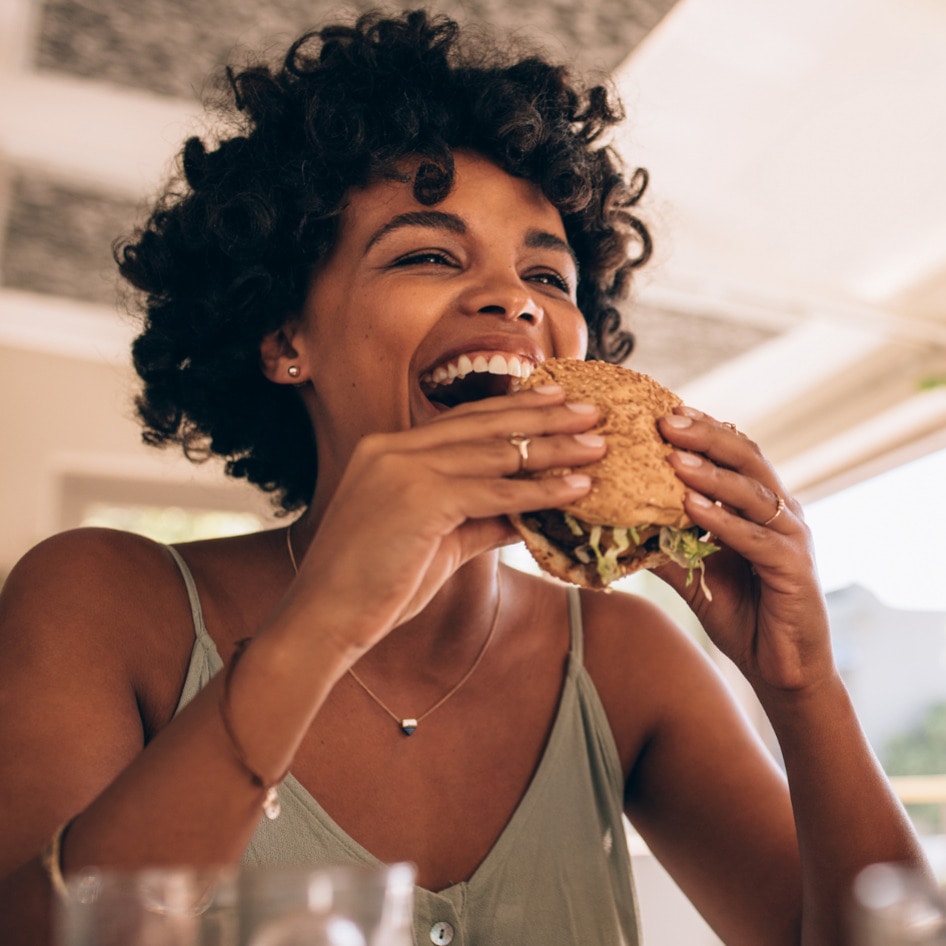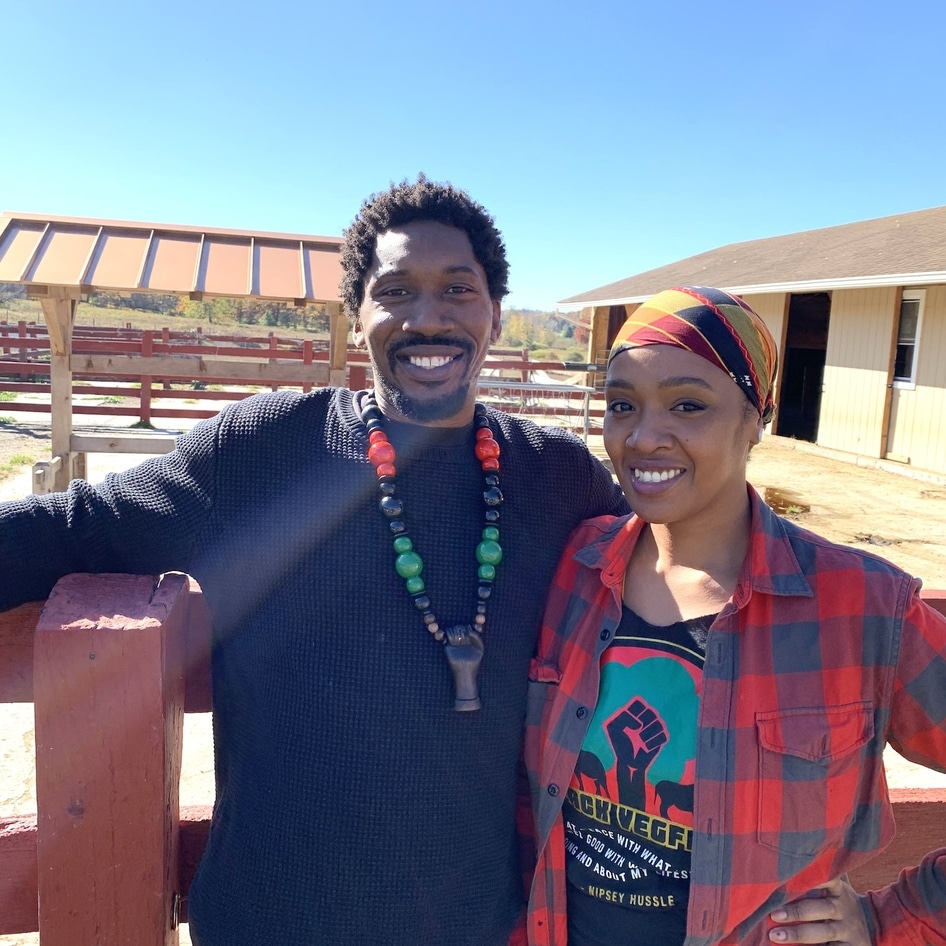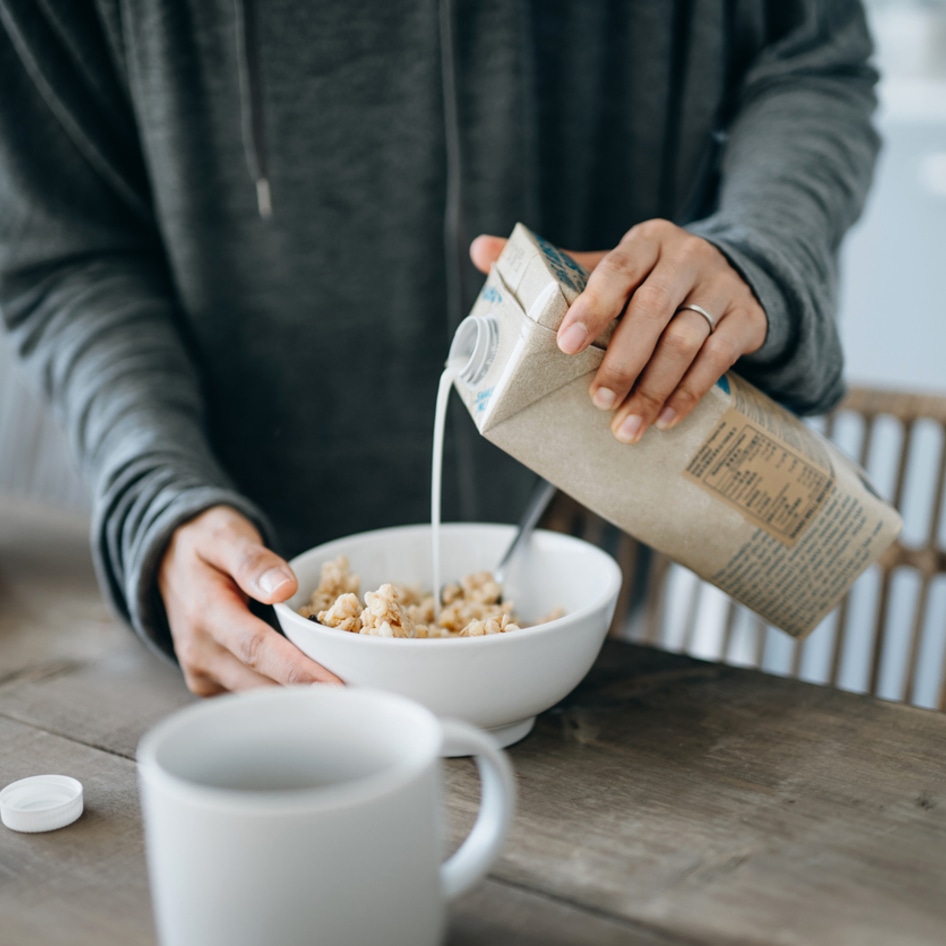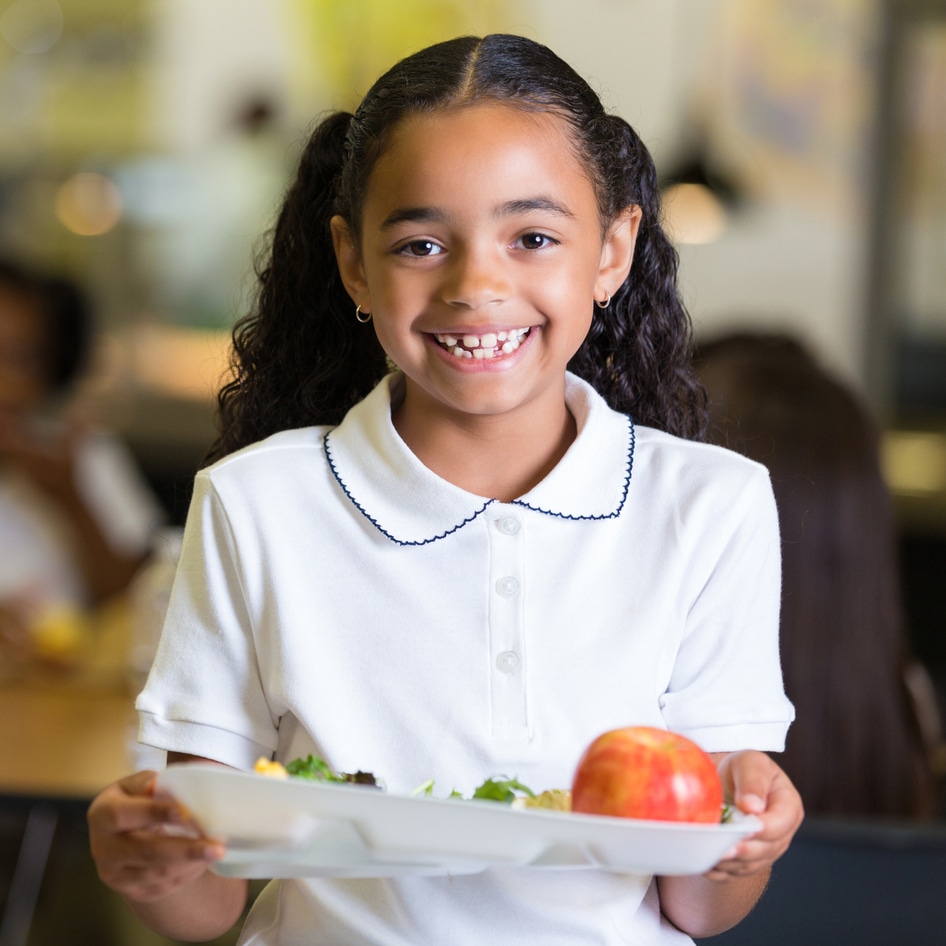A few initiatives are in the works to make sure that kids have the most access to vegan options during the 2022/2023 school year. The availability of vegan food and dairy-free milk at schools across the United States varies greatly, with some regions still serving the same greasy dairy pizzas and chocolate dairy milk while others push for more ethical, environmentally friendly, and healthier meals for kids. A number of initiatives are aiming to close this gap to help all children thrive.
One obstacle to providing a full range of vegan options at schools is an outdated policy around dairy milk. Under the National School Lunch and School Breakfast Programs (NSLP), a USDA regulation that is wrapped up in dairy industry lobbying, schools are required to serve dairy milk in order to be reimbursed by the NSLP for meals. Federal regulations stipulate that program participants “cannot discriminate against the drinking of cow’s milk before school, after school, on school grounds, or at any school-sponsored event.” Established in 1946, the NSLP serves more than 30 million children in more than 100,000 schools.
The requirement is predicated on claims that dairy is nutritionally important for children, despite the fact that many of them—particularly children of color—are lactose intolerant. When it comes to the numbers, research shows that up to 80 percent of Black and Latinx people, up to 95 percent of Asian people, and more than 80 percent of Indigenous Americans cannot digest lactose without adverse effects such as diarrhea, nausea, cramping, and bloating.
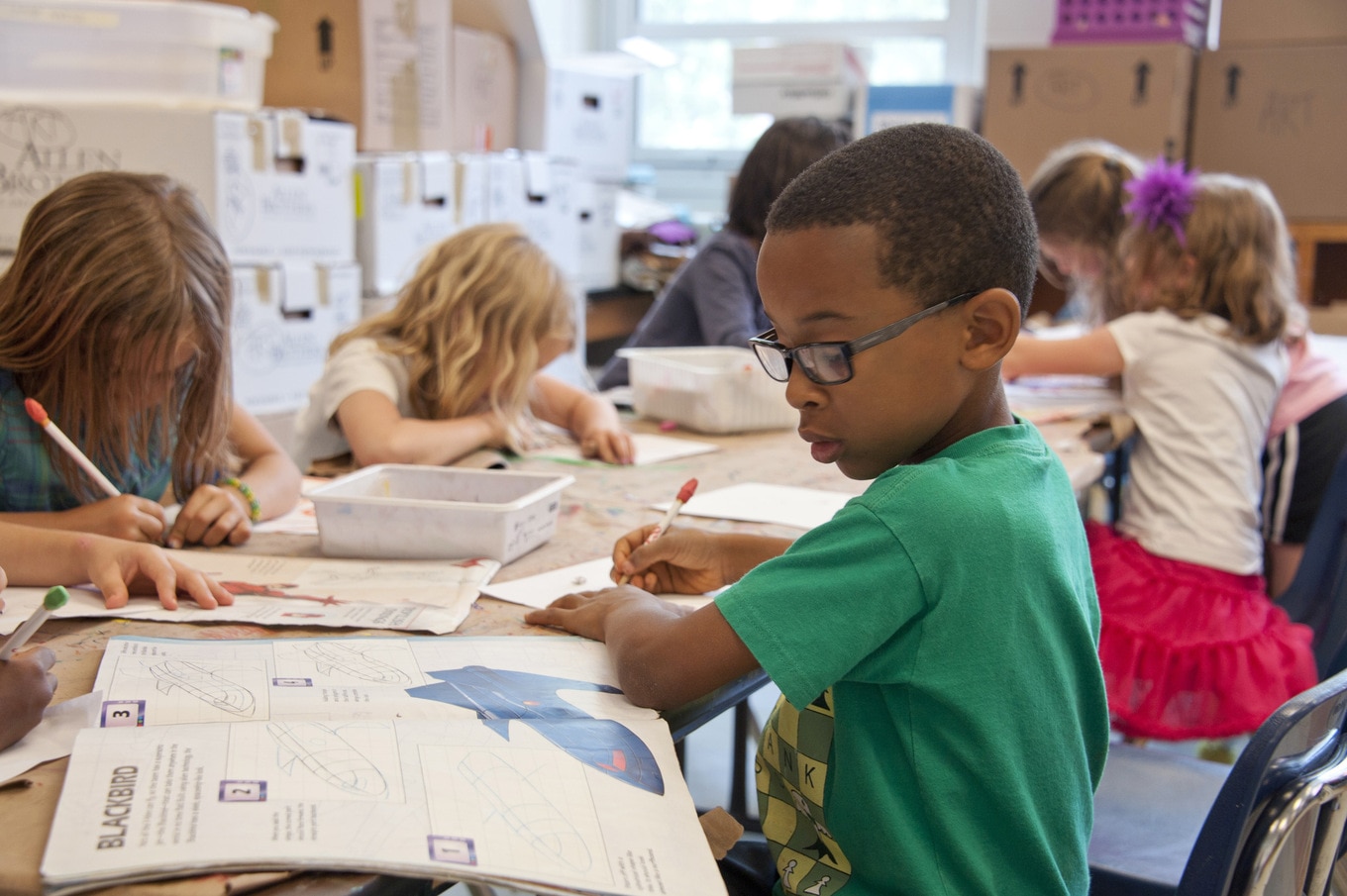
This week, a group of 28 organizations including National Urban League, National Action Network Washington Bureau, NAACP’s Maryland State Conference, Switch4Good, and Coalition for Healthy School Food, sent a demand letter to the USDA in regard to this policy, which they say constitutes dietary racism. “If Black lives matter, so does our health and nutrition, but the NSLP has consistently failed children of color,” Milton Mills, MD, said in a statement. “Either schoolchildren drink the milk they’re given and suffer in class while they’re trying to learn, or they go without a nutritionally significant portion of their meal.”
The group is asking the USDA to update the NSLP policy to proportionately compensate schools for serving soy milk, which the federal government recognized as nutritionally equivalent to dairy milk in its 2020 dietary guidelines. “It is hard to imagine a more inequitable and socially unjust USDA practice than force-feeding cow’s milk to children who get sick from drinking it,” Switch4Good Executive Director Dotsie Bausch, an Olympic cyclist, said in a statement. “If 80 percent of white children got sick from drinking milk, schools, parents, and government agencies would rightly fall over themselves to find a solution.”
Jo Saint-George, Chief Legal Officer for Women of Color for Equal Justice, points out that the NSLP stands starkly in contradiction to the principles behind the USDA Equity Commission, a 15-member group charged with improving equitable practices across the organization. “The USDA’s own anti-discrimination regulation mandates that the agency take action to correct the current injustice against lactose intolerant children,” Saint-George said in a statement. “Failure to act delegitimizes the very existence of the USDA Equity Commission.”
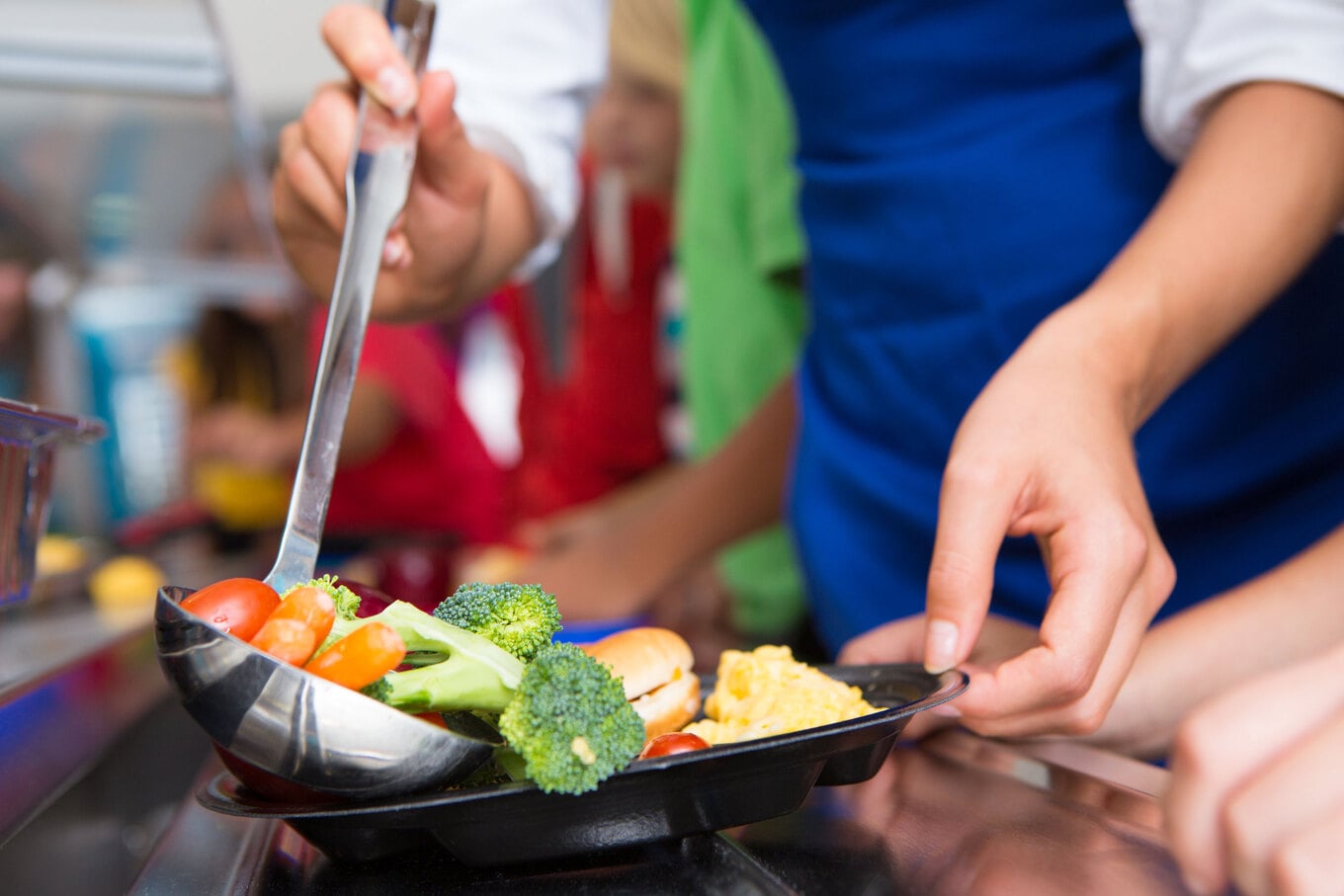
Getting vegan school lunch on the menu
While the USDA demand letter aims to give children equitable access to dairy-free milk, other developments are helping put vegan food on the school menu. In Illinois, Governor JB Pritzker signed new legislation in May that will give nearly two million children within the state’s school districts access to more plant-based meals. Under the new law—which goes into effect in August 2023—all Illinois schools must provide a plant-based meal that meets federal nutrition regulations to all students who request it. This new law also serves to satisfy other requirements, including those followed by Muslim students under halal dietary laws.
New York City schools are also trying something new with Plant Powered Fridays, a program championed by the city’s mayor Eric Adams—who regained his health by switching to a plant-based diet after a Type 2 diabetes diagnosis. First put in place in February, this program gives more than 930,000 children within the NYC public school system access to vegan food every Friday.
Earlier this year, California made significant progress in this direction by earmarking $700 million of the state’s $308 billion budget. This sum will be divided into two parts, with $100 million going directly toward supporting schools in procuring plant-based foods, as well as sustainably produced foods, California-grown foods, and foods to accommodate the dietary needs of students. The remaining $600 million will be invested in upgrading school kitchen infrastructure and in training and compensating food service workers, who will be tasked with preparing new plant-based meals and increasing scratch-cooking.
On a federal level, Representatives Nydia Velázquez (D-NY) and Jamaal Bowman (D-NY) proposed the Healthy Future Students and Earth Act (H.R.4108) in June 2021. This proposed legislation seeks to establish a voluntary pilot grant program that incentivizes school districts to serve plant-based, planet-friendly, and culturally appropriate meals.
In February, vegan musical artist Billie Eilish took a short break from her Happier Than Ever World Tour to voice her support for H.R.4108 at Capitol Hill. “I’m proud to advocate for this legislation that will help to fight climate change, combat food insecurity, and promote health equity,” Eilish said in a statement.
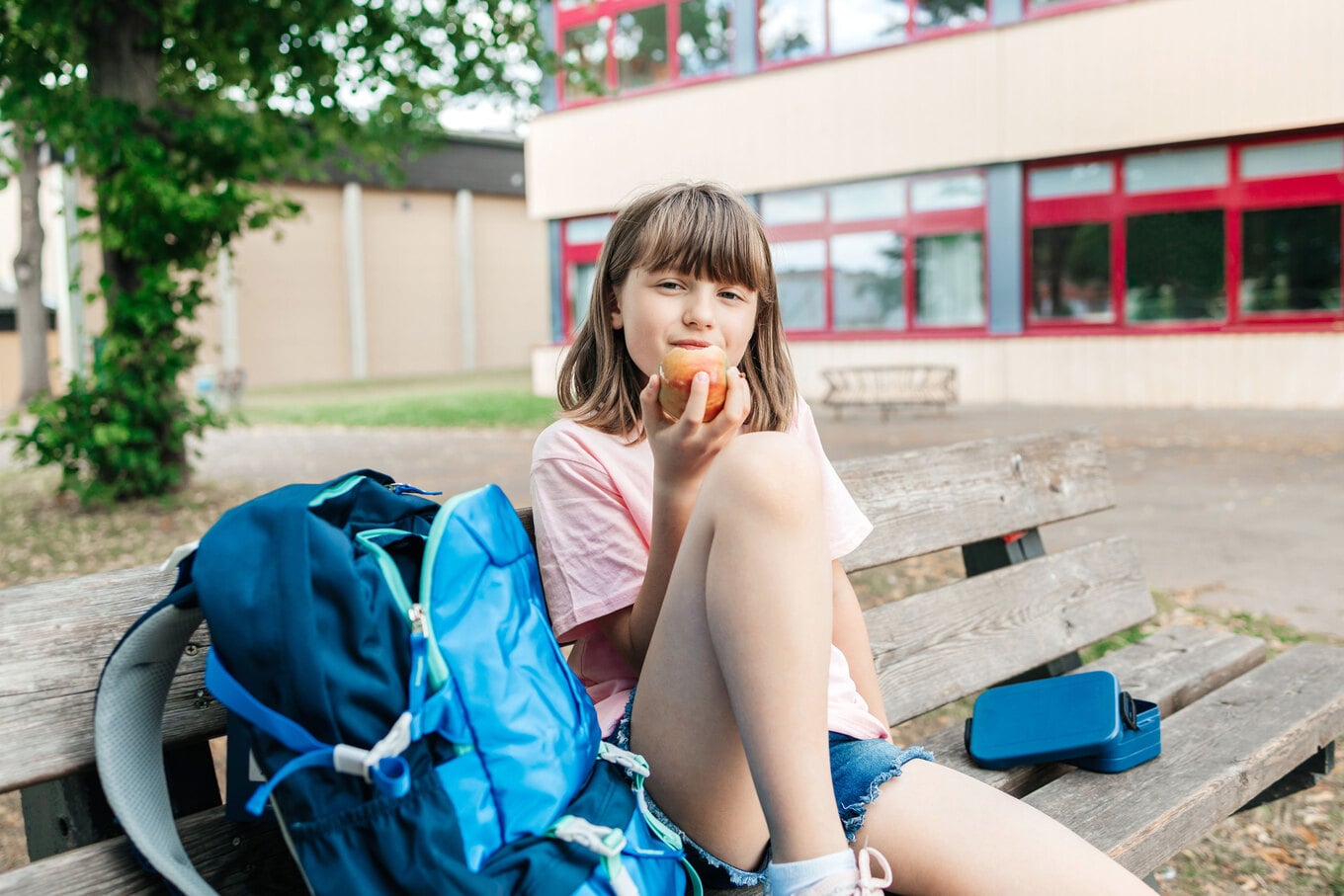
Veganuary’s Vegan School Lunch Challenge
While many children rely on school lunches for nutrition, some parents are able to pack meals for their children to take to school. This year, Veganuary is aiming to inspire parents to pack vegan school lunches with its first fall campaign. Typically, Veganuary challenges people to go vegan for the month of January and beyond. This year, Veganuary is behind the Vegan School Lunch Challenge, which runs from August 16 until September 13 and aims to inspire families to eat plant-based for lunch at least one day of the week.
To help parents pack a vegan school lunch, Veganuary partnered with vegan brand Forager Project—which makes Kids Cashewmilk Yogurts—to create a toolkit with a variety of resources about plant-based nutrition such as kid-friendly recipes.
For the latest vegan news, read:
Why Vegan Just Egg Is Everywhere This Summer
Vegan Lasagna Helps Daniella Monet Reconnect With Her Italian Roots
Red Meat Increases Risk of Heart Disease by 22 Percent per Serving
JUMP TO ... Latest News | Recipes | Guides | Health | Subscribe

